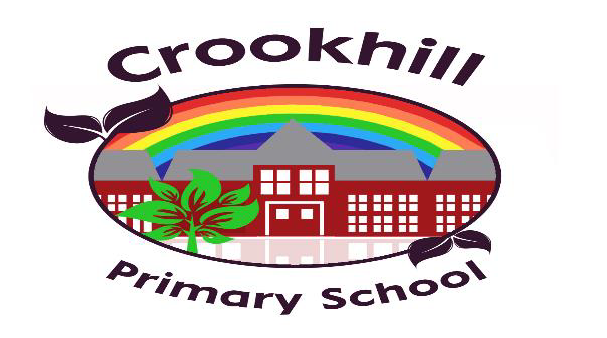Computing
Intent
At Crookhill, our computing curriculum intent is to support children in becoming functioning Digital Citizens by having the ability to use Information Technology effectively for a variety of purposes and having a clear understanding of content (knowing what to share and what not to share); contact (how to have safe and appropriate interactions online) and conduct (knowing how to interact and making sure their contributions are positive). We strive to equip pupils with the confidence and skills to use digital tools and technologies throughout their lives.
Our computing curriculum is developed from the National Curriculum for Computing at Key Stages One and Two. The curriculum is broken into 3 main strands: Computer Science (programming, computational thinking and problem solving); Information Technology (creating media, word processing and data presentation) and Digital Literacy (E-safety and computer networks). The key knowledge for each unit is set out in the Long Term Planning documents for each Milestone along with key vocabulary and suggestions for activities that will develop children’s understanding of the key strands. These documents are then used to form Medium Term Planning documents that underpin the teaching and learning of concept and the relevant skills. E-safety is a common strand throughout the whole curriculum and is taught both discreetly and woven carefully into each unit to ensure that children develop the understanding of how to use computers and digital tools safely and responsibly. We use the Education for a Connected World framework to support our curriculum planning. We offer a broad, balanced, challenging and enjoyable computing curriculum which offers cross curricular links to enhance and enrich learning in other areas of the curriculum.
Implementation
How do we deliver Computing at Crookhill Primary School?
- Computing is studied across the year in blocks of, usually, half-termly units with a specified planned outcome (which may be cross curricular).
- These lessons are usually delivered weekly, but opportunities may be taken to apply the computing skills in other lessons on a more regular basis.
- Children in KS2 have daily opportunities to access information technology to both support their learning of the computing curriculum and to enhance their learning in other subjects through the use of information technology.
- We use a range of resources including Purple Mash, Beebots, Scratch, Microsoft Office and resources from Teach Computing, but do not follow a particular scheme to deliver computing.
- Computing is sometimes used to complement the learning in other subjects, for example links may be made to history or geography schemes of work.
- Where possible, opportunities to practise computing skills, such as word processing, are included as part of other curriculum subjects.
- We deliver computing lessons using a range of different types of activities including but not limited to: teacher led activities, guided exploration, a use, modify and create model and independent application using computers and tablets.
- We regularly revisit the content of lessons (and previous learning from prior year groups) to ensure that learning is embedded.
- E-safety is interwoven throughout the curriculum.
Impact
We believe that progression in computing require all aspects of the discipline to be developed and built upon. Key skills and understanding can be assessed through the outcomes created in each unit. The skills and concepts of the curriculum are assessed throughout each Milestone that the children are working within.
An ongoing record of these skills and concepts is kept in order to build up a picture throughout the Milestone phase the child is working in. Milestone assessment sheets give suggestions to staff of how information can be collected through assessment activities which will help to build a picture of each child or cohort’s current level of understanding. The aim is to build a narrative for each child or group rather than to collect data. This information can then be shared with the next year group’s teacher who can build upon the starting points of the class.
At Crookhill Primary we believe by becoming functioning Digital Citizens, children will develop an understanding of the information technology available to them at home, in school and beyond and know how to use this in a positive and productive they. They will be able to use it to engage with different agencies and organisations both in school and beyond. It is vital that children are able to navigate the online world in a positive way. Digital Citizenship goes beyond making the right choices and knowing how to stay safe online, but also making positive contributions to their community.
